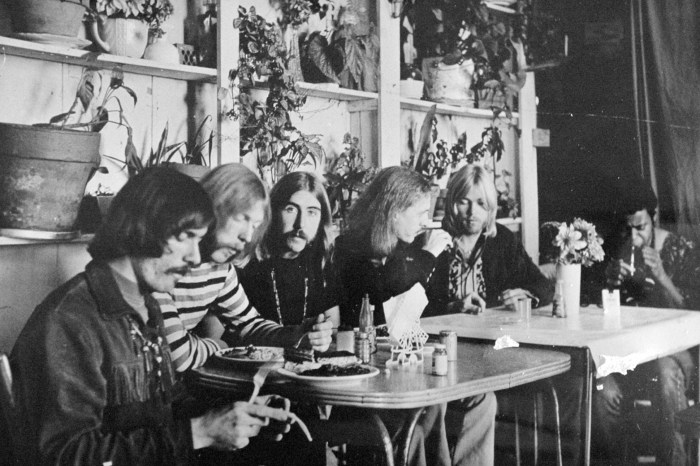 Film critic Phil Hall’s latest book is “The Greatest Bad Movies of All Time.”
Film critic Phil Hall’s latest book is “The Greatest Bad Movies of All Time.”
Credit: Provided
Over the last several years, bad movies have made a comeback. Films like “The Room” and “Birdemic,” plus old discoveries like “Troll 2” have created a cottage industry around uniquely terrible films that hasn’t been this strong since the days of “Mystery Science Theater 3000.” With his new book, “The Greatest Bad Movies of All Time,” Film Threat critic Phil Hall, as per the title, chooses not to hang films he considers “anti-classics,” but celebrate them. These include not just terrible amateur productions, but lavish Hollywood bombs — and even established greats like Clint Eastwood’s “Mystic River.”
When did you become aware that movies could be bad?
I remember as a kid I went to see “Airport ‘75” in the theater. I was 9 years old and I remember, even back then, thinking, “There’s something wrong with this movie. This is not the way grown-ups are supposed to behave.”
Not long after that Michael and Harry Medved were releasing their run of books about bad cinema, like “The Golden Turkey Awards.”
I still have them. They’re all worn out by now. The Medveds can be a little catty and nasty in their writing. But they were the first ones to come out and say, “Yes, there are these ‘golden turkeys.’ And we love them.” Granted, they were making fun of them. I try not to do that. I try not to denigrate people’s work, and I don’t want to discourage people from seeing these films.
It’s a very subjective batch, and not all of the biggies are on here.
I didn’t just want to have all the big budget flops or the cheap horror films of the ‘50s. I wanted to show these wonderfully bad movies existed as far back as the silent era. They stretch through all genres. My favorite is the documentaries. I love the idea of nonfiction films that get their facts wrong.
And you include “The Room,” which is a trainwreck made by someone convinced it was a serious, mainstream drama.
That’s the beauty of it: Nobody actually was able to stop [filmmaker] Tommy Wiseau and say, “Tommy, you’re going in the wrong direction.” But he was working independently. A lot of the films in the book are studio releases, and there you’re going through committees and commissions and dealing with tens of hundreds of people in the creation. It’s almost impossible to imagine that some of these films got into release without anybody realizing they had a dud on their hands.
The scope of the film is wide enough that it includes Wiseau and not one but two films by John Huston: “Beat the Devil” and “The Bible…In the Beginning.”
It doesn’t matter who’s behind the camera. It could be someone of John Huston’s stature or a Tommy Wiseau — anybody can make an anti-classic. John Huston apparently once had a quote where he said, “We can make good films just as easily as we can make bad films. It’s just going to cost a little more.”
In one way, bad movies seem to unite audiences like no other kind of film. It’s actually a strong example of the magic of cinema.
I find sometimes that people are more enthusiastic talking about the great bad movies than the great films. We can have a discussion of Tarkovsky or Kurosawa, and it can be a very stimulating, cerebral conversation. But you start talking about “The Room” and “Mommie Dearest” and the enthusiasm level ratchets up dramatically. People become more viscerally engaged when discussing why they’re so enraptured by these films.
Were there films you would have loved to include but which you simply couldn’t find? The Holy Grail of this would of course be Jerry Lewis’ “The Day the Clown Cried.”
I would love to see the film. I have a sneaking suspicion it isn’t as atrocious as legend has made it out to be. I would love to see a movie called “Catch My Soul,” which was a musical and it played on Broadway and the West End. It was a contemporary retelling of “Othello.” The film version had Richie Havens in his only starring role, and it was directed by Patrick McGoohan, and it was the only time he ever directed a film. I’ve never been able to locate a copy. I know 20th Century Fox owns the rights, but because of music license issues they never put it out on DVD.
Oftentimes the amateur filmmakers of bad movies will embrace their notoriety. And then there’s Halle Berry and Sandra Bullock, who showed up at the Razzies to collect their trophies for “Catwoman” and “All About Steve.”
It goes with the territory. People who’ve been in the business for some time, they’re not that thin-skinned. They realize they’ll make great films, and they’ll make not so great films. But at the end of the day they’re making films. They’re doing what they love to do. Ultimately they have the last laugh.


















